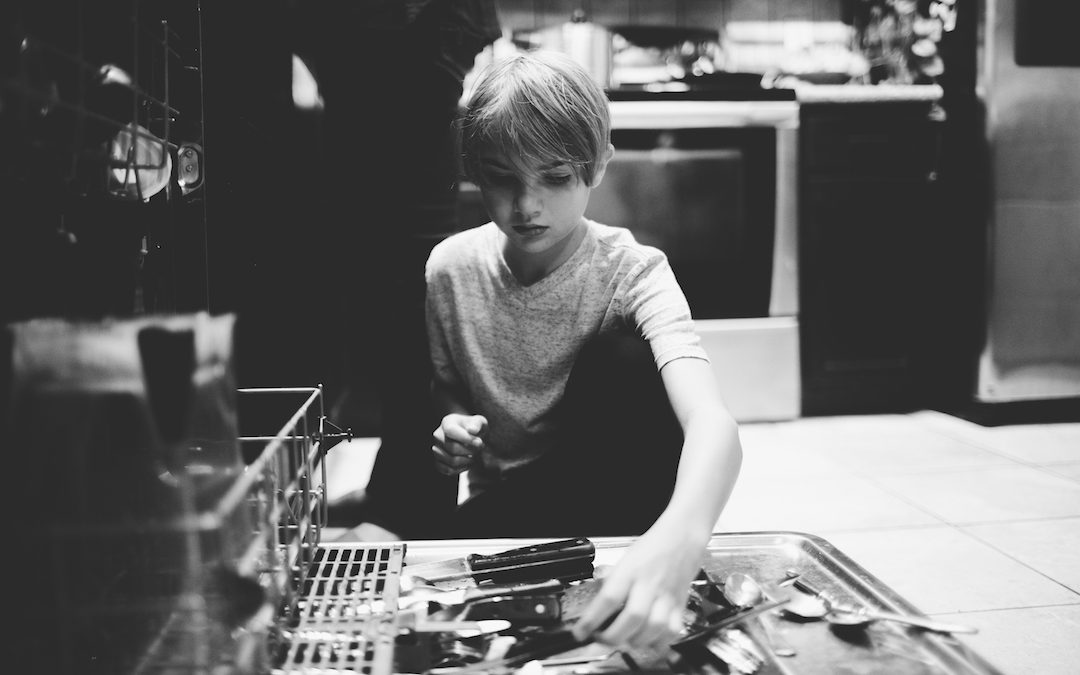
by Rachel Toalson | Crash Test Parents
Every evening, at around 6:15, you will hear my house erupt into a chorus of weeping, gnashing of teeth, and flop-sliding across a (very) dirty kitchen floor.
This is the time in our schedule known, affectionately, as Complain About After-Dinner Chores Time.
It doesn’t matter how many times we’ve done this routine—we even have a reminder sheet posted in a convenient location in our kitchen that states, very clearly, “As soon as dinner is over, put your plate away and immediately begin on your after-dinner chores. Mama and Daddy will gladly accept payment for your chores if you choose not to do them.” Still, my kids will act surprised when they’re stretched out in the living room, reading a book, and Husband or I gently touch their shoulder and say, calmly (on the good nights), “Have you already done your chore?”
“What?” they’ll say, like we haven’t done this dance every single night since they first started doing chores when they were three.
“You have a chore, remember?”
The response to this is always, “I haven’t had a night off in a long time.”
Yeah, well, join the club, kid.
Lately, they’ve gotten very creative about trying to get out of these chores. As I’m bending over the sink trying to finish up the washing of twenty cups that six kids managed to dirty during the course of the day, they’ll toss out their far-fetched excuses, and, to be honest, I don’t have much empathy for them at the end of a day when I’ve taken knees and elbows into my side and back because I decided I was going to meditate on the floor during their reading time, which you should never, ever do in a house of boys.
Here are some of the excuses my boys have given their daddy and me for getting out of their after-dinner chore time.
1. “I hurt my leg.”
To be more accurate, you could trade out “leg” with any other appendage or organ on the human body. It could be head, arm, stomach, booty, even penis sometimes. My boys have a wonderful grasp on anatomy vocabulary, which they showcase practically every night to get out of their after-dinner chores.
These hurts, however major or minor they may be, all make doing their chores impossible.
I wake up aching every morning now (getting old stinks), but I’m still expected to lean over the dishwasher and put the silverware where it goes when it’s my turn on the schedule. Otherwise, no one would have any utensils to eat with. I know my boys wouldn’t care about omissions like that, but I do.
The other day, as we were walking home from school, my oldest son was looking down at his leg, which he said was hurting a little, and, while he was looking down, he walked right into the limb of a tree. I tried not to laugh (it was very difficult) and then checked him over for damage. He was okay. The branch had narrowly missed his eye.
Guess what he used as his excuse that night.
This boy has a slight penchant for the dramatic, so that night he said, “You know I almost blinded myself today!” He pointed at the tiny little scratch beside his eye and said, “What if it gets infected and I lose my eye?”
Still doesn’t excuse you from your chore tonight, buddy. One day at a time.
2. “I forgot I have homework.”
This one is always fun, because (1) I hate homework and don’t always feel like enforcing the completion of it, because I’d rather my sons be playing, and, also, they’re in elementary school. It’s unnecessary. And (2) they actually have ample time to do that homework in the afternoon. They’re supposed to do their homework before they do anything else—before they have their designated technology time, before they go play outside with their friends, before they take out the LEGO collections and start building immaculate cities.
So if they tell us that they still have homework, our standard response is, “Well, I guess you’ll have to get up early tomorrow and do it. Homework time has passed for today. Now it’s time for after-dinner chores.”
It might sound cruel (and they certainly think it is), but to reiterate, I don’t really care about homework, and part of growing up is taking responsibility for the things you have to do. I can’t micromanage them all their lives just to make sure they’re doing their homework and turning it in. I don’t have the energy or the patience.
3. “None of my friends have to do chores.”
This phrase is usually coupled with the followup phrase, “This is the worst family ever.”
If I were to listen to my boys on this issue, none of their friends would have to wear jackets in the winter, fold and put away their own clothes after they’ve done laundry, do their homework, take a bath, or pick up after themselves.
They especially don’t have to wipe counters, wipe off the table, sweep the floor, load the dishwasher, put the dishes away, or take out the trash.
My standard response to this is a twist on the good old classic, “If your friend jumped off a cliff.”
“It’s a good thing you’re not like your friends, then,” I say. “Because if your friend jumps off a cliff, you’ll have the foresight not to follow.”
They never appreciate the irony of this statement quite as much as I do.
4. “I feel sick.”
Usually this declaration comes on the heels of eating twelve pieces of pizza or five helpings of mashed potatoes. I think it’s half falsehood, half truth. I’m sure their stomachs really are hurting, because they inhale their food so fast their stomachs don’t have half a chance to tell them it’s already full. I’m not the least bit surprised they feel sick, but, unfortunately, that doesn’t mean they’re going to get out of their chores. I could barely stand up one day because the flu virus was ravaging my body, and I still had to wash the dishes because it was my turn. I felt like complaining all night, too, but I wanted to be an example. So I held up my head with one hand and used the other hand to load the dishwasher, because Toalsons are tough.
5. “My teacher said I had to ____.”
Sometimes my boys will bring their teachers into things. My teacher said I had to do more homework. My teacher said I had to collect some dirt, and it will be too dark out there when we get done with the chores. My teacher said I need to bring a different kind of lunch tomorrow, which I’m going to pack right now.
Oh, what kind of lunch?
A lunch with cupcakes in it.
Huh. I didn’t get that message.
Whatever it is they tell me their teacher told them to do, I usually follow up their declaration with the same answer I use for excuse number three.
6. “It’s raining.”
I’m not really sure what the weather has to do with doing chores (or, really, anything at all in our current place on the nighttime schedule). Maybe it’s just an observation. But then the one on trash duty will look at me and say, “Well, I won’t be able to take out the trash because it’s raining.”
A little rain never hurt anybody.
Sometimes one of them will say it’s too dark to take out the trash; they’ll have to do it tomorrow.
So I clear my throat and tell a true story: I had to carry laundry from my bathroom to a detached building and back again every time I was on laundry duty as a kid, rain or shine, day or night. I worked hard to get it all done before the dark descended upon the corn fields all around us, because you never knew what kind of horrors were living in those plants. They whispered things you didn’t want to hear. (Yeah, I was an interesting kid.)
Weather is no excuse. Carry on.
7. “I’m tired.”
I cannot truly capture the magnitude of my mirth when it comes to this excuse. Tired? They don’t even know the definition of tired. Tired is wrestling six kids into bed when you can barely hold up your head because of the flu. Tired is getting up and cooking breakfast for your kids after you spent a night courting a particularly vicious stomach virus. Tired is trying to figure out how to do your day job after a toddler kept you up all night with his night scares.
That’s tired.
Now. I know they have long days at school, and that can be tiring, sure. I empathize with this; if I had to spend all day around whole groups of people, I likely would have to peel myself up off the floor to fling myself into bed (which is usually what I do when it’s my bedtime, and I only have seven other people in this house). I get that school is mentally and physically challenging and that walking a whole half mile to and from that school can also be tough.
But too tired to do a chore that will take ten minutes if you just suck it up and do it? Nope.
I don’t know that we’ll ever hear the end of excuses when it comes to chores. They’ll probably just get a bit more sophisticated as my sons get older. But neither Husband nor I will ever give up this battle, because it’s important that our children learn they’re part of a family and that we need their contribution. It’s important for them to know that what they do within the dynamic of our family’s life is necessary, vital, and appreciated. It’s important for them to know that they belong, here, with all of us. We are a team. We support our members. We do what needs to be done.
This is family life.
So until one of them comes home with a hatchet sticking out of his head (which happened to my cousin when we were kids; he was a boy), we’ll be continuing to embrace our Complain About After-Dinner Chores Time every single night.
Mostly. Maybe I’ll start wearing some headphones.
This is an excerpt from Hills I’ll Probably Lie Down On, the fourth book in the Crash Test Parents series. To get access to some all-new, never-before-published humor essays in two hilarious Crash Test Parents guides, visit the Crash Test Parents Reader Library page.
Photo by This Is Now Photography.
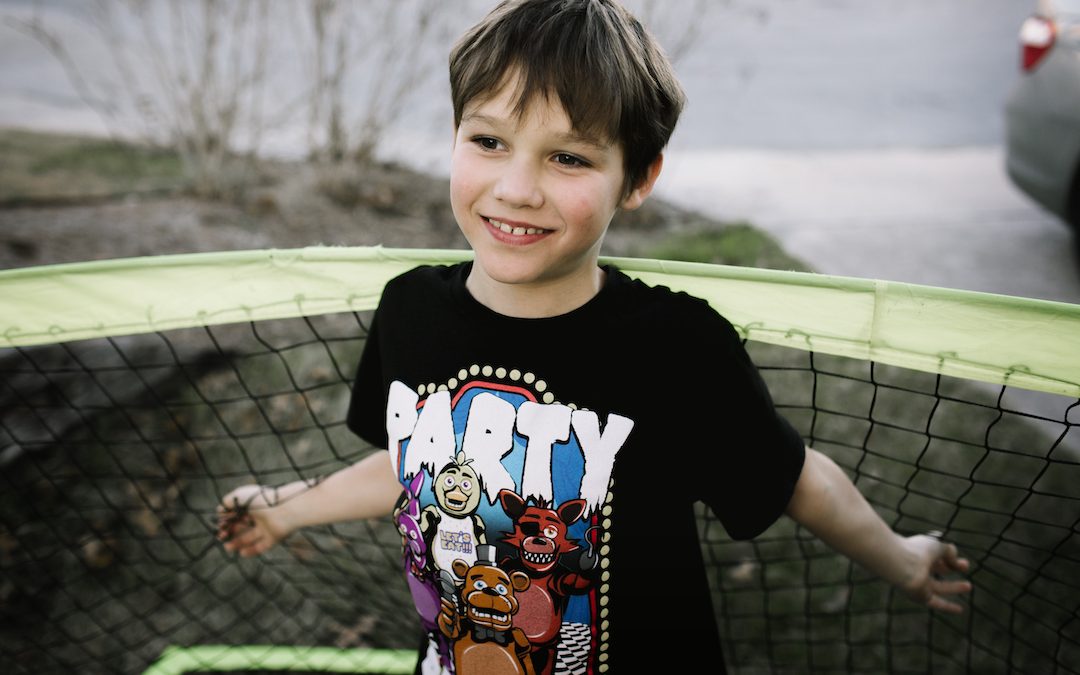
by Rachel Toalson | Wing Chair Musings, Wing Chair Musings featured
He was playing a video game, for his designated technology time, but he was crying.
I gave him a few minutes, thought maybe it would die down and he would master the game and the whine-crying would cease. But it continued.
I was trying to read a book about the adolescent brain—which was difficult enough without the interruption of the upset of one of my children, which always signals to my brain, my heart, and my body, that I must turn my attention to the weeping one. This is, I suppose, the natural inclination of a mother: to heal the hurt of her children.
I put down my book and watched him. His face was already red. Tears dripped in a continuous trail down his sun-browned cheeks.
In my house, it’s perfectly fine to cry. Crying is helpful and healing and completely natural. However. I find it especially perturbing when a child is crying continuously about something that is supposed to be fun; the obvious thing to do was quit playing what was making him cry.
My son had done this very same thing a couple of days ago—cried during the whole half hour of tech time he spent on the Nintendo Switch, after which he had a headache and had to lie down.
I said, “Maybe you should put it away.”
He ignored me and continued trying. I watched him for a moment, torn by my desire for him to keep trying and the way his cry was snipping at my nerves. I said, “Put it away, baby. It’s silly to cry about a game that’s supposed to be fun. Remember what happened last time?”
He reluctantly put it away.
After a few minutes, he said, “When you said it was silly to cry about something that was supposed to be fun, were you saying I’m silly?”
I put my book down again. I explained to him that calling what he does silly does not mean he is silly.
“But it’s something I do,” he said.
“But what you do doesn’t make who you are,” I said. We’ve told our sons this over and over and over again, but it’s a difficult concept to grasp. I said, “If I yell, does that make me a yeller?”
“No.”
“If I lie, does that make me a liar?”
“Well if you do it often enough.”
I held up a finger and shook my head. “It might make me seem like a person who lies,” I said. “But it doesn’t make me a liar.”
It’s a subtle difference, with a nuance that is often lost on young children, but he is growing older, and he has heard this before, and hearing it another time will solidify it in his mind and heart and, more importantly, his identity. So I continued. I said, “‘Liar’ is a negative label. We don’t use negative labels for people, only for actions. So you’re not silly. Some things you do might be silly, but that does not make you silly.”
He looked at me for a minute, grinned, and stood up, heading toward the playroom, where LEGOs waited for building. On his way, he pretended to walk into an invisible door.
A perfect finale for such a serious talk.
(Photo by This Is Now Photography.)
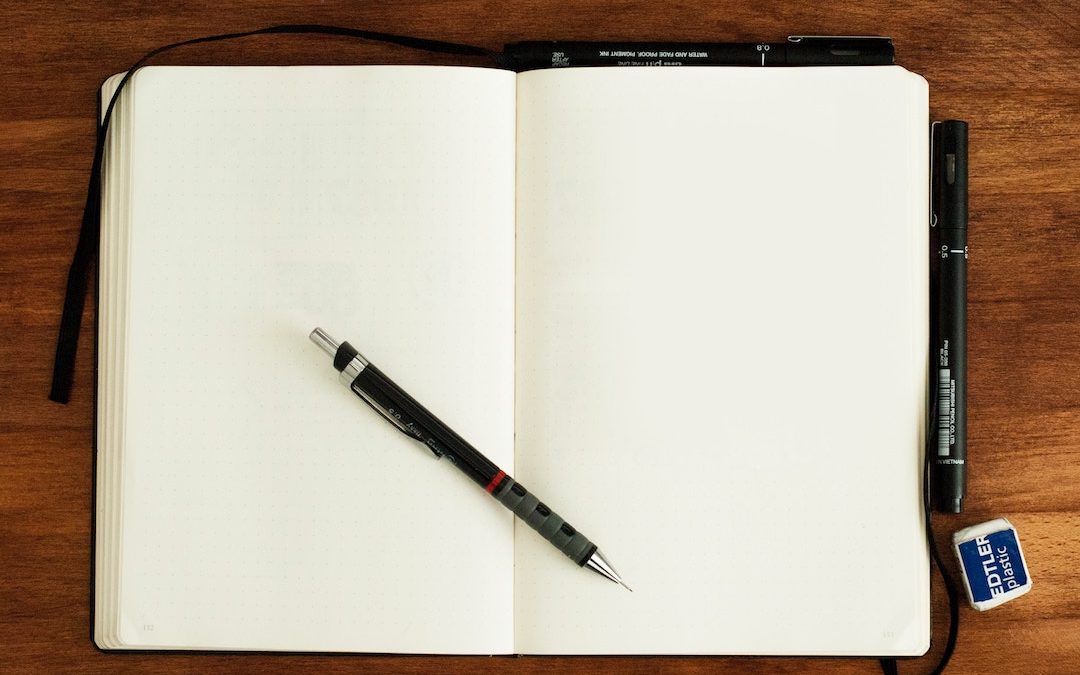
by Rachel Toalson | My Books
A couple of years ago, I challenged myself to write a poem every single day.
I have always loved poetry as a form and as a mechanism for communicating deep truths and examining difficult subjects. Poetry is a standard in my day and life—both the reading of it and the writing.
That particular year, I was afraid that I would run out of material to write those daily poems. I know, now, that when one is paying attention to one’s world, there is never a shortage of material from which to choose.
I had this calendar from Half Price Books (I’m one of those old-fashioned people who doesn’t like using technology for things like schedules. I like to have calendars and actual to-do list I take out and hold and write on.) Printed on the daily squares of this calendar was the name of a famous writer, artist, photographer, musician, or dancer—someone involved in the arts. I decided this would make the perfect process—use the person who was born on that day, look up a quote from him or her, and then write a poem that was my response to that quote.
This worked marvelously. It was such a random collection of subjects and themes that each person had spoken about, and this allowed my poems during that year to touch every part of the human experience.
Each poem was written in a composition book (I always write poetry by hand) and then transcribed onto my computer. This book contains only a fraction of the poems I wrote that year. Some others are waiting to be collected into another book (or two), and others were made to be tossed out, a good practice exercise.
No poem is wasted, even if they are tossed out.
Several of these poems are gathered into Textbook of an Ordinary Life, which releases Nov. 6.
(Photo by Mike Tinnion on Unsplash)

by Rachel Toalson | Poetry
We’re walking to school together,
and it’s clear, even on the
short half-mile walk, that people
don’t really care about the earth.
Soda bottles hug curbs.
Candy wrappers flap like flags,
caught between two blades of grass.
An old fast food bag,
with the trash that tells of
almost everything consumed
except for a few fries, crunches
beneath the tires of careless cars.
No one stops to pick any of it up,
put it where it belongs.
Not even me.
My boys stop to hassle a snail,
on its way to who knows here.
They stop to examine a busy ant pile,
waves crawling across the indentation
of a shoe that, from its simple print,
leaves no indication as to whether
this disturbance was accidental or purposeful.
They pause to pick flowers in the field
beside their school, and I am struck, momentarily,
by how beautiful this earth is,
by how solid it appears but
how very fragile it actually is.
I wonder if my children’s children
will be able to stop and trace
the shiny path of a snail.
I wonder if my children’s children
will bend to observe an anthill come alive.
I wonder if they will have the pleasure
of dancing in a field of flowers,
picking handfuls of purple and white
to thrust at their mother.
I hope they do.
I want to make sure they do.
But then we are back home,
where the madness of life
tornadoes around me,
and I forget about the
fragility of the earth,
in favor of my own fragility.
And I know, then, why people forget
to care about the earth.
Life is
much more urgent.
This is an excerpt from Textbook of an Ordinary Life: poems. For more of Rachel’s poems, visit her Reader Library page, where you can get a few volumes for free.
(Photo by Chang Qing on Unsplash)
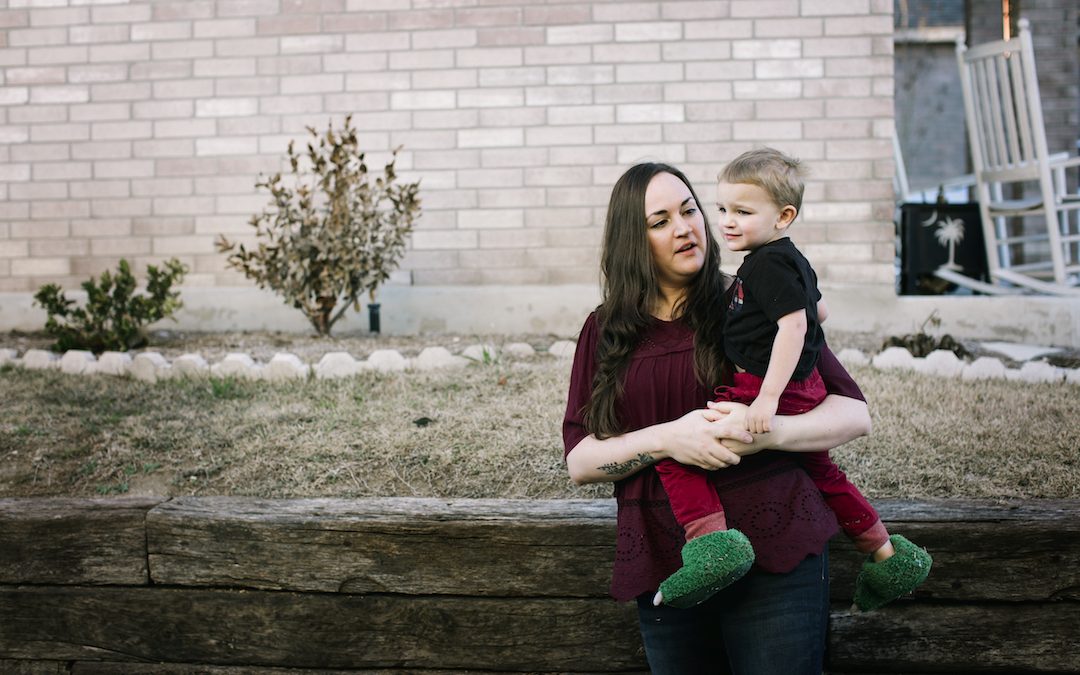
by Rachel Toalson | Crash Test Parents
There is only one boy in my house who wants me to kiss the hurts away, and he is the youngest.
I remember a time when my boys would get hurt, and they would come clambering into my room or into my office space asking for a kiss to make something better. I used to do it for the twins all the time, because usually when one would get hurt and see that Mama had kissed away that pain, the other would remember an unrelated hurt, from days ago, that still needed kissing.
Mama’s kisses used to be magic, but that goes away right around the age of 4.
The other day my youngest was trying to get off the couch, and usually he does it the right way, so I didn’t feel the need to spot him. He masters this climb nine times out of ten. I figure that’s pretty good odds. Unfortunately, this happened to be the one time out of ten, and he went rolling off the couch onto the carpeted floor, which we’ve been talking about tearing out and turning into a stained concrete floor. But after the youngest bumped his head and ended up with an impressive rug burn, I think we’ll hold off for a while.
He came to me with his little red mark on the top of his forehead, big fat tears rolling down his chunky cheeks. When I picked him up, he stuck his forehead right against my mouth. I kissed it, because this is our ritual, and who knows how long it will last? For now, he gets hurt, he brings the hurt to me so I can kiss it away. And it works like magic every time. He’ll move away and play again, seeming to have forgotten all about whatever was hurting him in the first place. And I never cease to marvel that he’s been healed just because of a little imagination.
I possessed this magical ability for a time with all of my boys. They used to all come to me, some more than others, because they believed that my kisses were magical. There’s something special about a little boy or a little girl (I don’t even know if they do it, because I’ve never had the experience of raising a little girl) believing fully in the healing properties of a mama’s kiss. Because the thing is, I always want to kiss away their hurts, even though one is nine and another is seven and another is six and two others are four and the last one almost two. I always want to kiss away their hurts, even when it gets as complicated as a little girl breaking their heart. Even when it’s as complicated as someone doing something terrible to them or the loss of a friend or making a bad grade on a test. I want to order their worlds just so, take away all that pressing pain and help them go through life with ease and comfort.
I’ve been thinking about this often lately. I didn’t have an easy childhood. I grew up on the edge of poverty. I knew what it was like to go to bed hungry, and it wasn’t my mother’s fault. She was raising three kids on her own, after my dad left when I was 11. I had to deal with parental divorce, and it broke me. I had to deal with a father who left for good and didn’t even try to keep in touch. And there were places that shredded in me. I don’t ever, ever want my children to feel that kind of pain.
Because I’m so sensitive to causing any kind of pain in my children, sometimes I beat myself up when I lose my temper and yell at my kids. But what it always comes back to is this: a little difficulty is good for kids. How else will they learn resilience if they don’t ever have to face the hard parts of a life? How will they ever figure out that never giving up is the only option in succeeding? If we order their lives just so, if we’re the perfect parents all the time—always patient, always calm, always completely and utterly adoring—how will they learn how to bounce back from the challenges in their lives?
We give them a safe place to explore challenge and perseverance.
The challenge in my own childhood is an extreme example. But I am grateful for it all the same. It has given me an understanding of others like me. It has given me wisdom on how to heal, how to be more human, how to prevent the same mistakes in my own life. It has shown me how far I’ve come.
I can teach my kids all day long about perseverance and what it’s like to overcome something difficult—because we can do hard things—and what it’s like to choose to love someone even though they’re being incredibly difficult and inconvenient, but the only way they’re going to really learn it is by experiencing it themselves.
I’m not saying that we should go out and try to make life difficult for our kids—although they’ll likely, at least for a time, say that’s what our sole mission in life is. That wouldn’t serve them, either. They want parents who are on their side, and as much as we can, we should be. But we can’t simply arrange their lives in order to protect them from every hurt that will come hurtling their way. We can’t beat ourselves up for the bad decisions and mistakes that we make over the years, because it’s all developing character in their lives. They get to see, by our imperfect lives, that they are growing up in an imperfect world, and they will need skills to survive that imperfection.
The other day, my 7-year-old came home with a paper that he had done in class, and it was some of that crazy math that I don’t even know how to do, even though I aced high school calculus and college algebra. The way the questions were worded, however, were confusing. He could not figure out what the question was asking, and neither could I. And I felt indignant for him, because he’d made a bad grade even though he tried really hard to answer them in the way he thought they were supposed to be answered.
I momentarily thought about writing a letter to his teacher, but I didn’t, because what he can learn from accepting that bad grade and knowing that he is worth more than his grades is something far more important than the triumph of acing every worksheet.
So I told him the truth: it wasn’t a big deal, he would do better next time, and the grade didn’t change who he was. He smiled at me so widely I melted into a puddle on the ground.
Sometimes all our children need to know is that they are capable of overcoming.
Good thing childhood gives them plenty of opportunities to absorb that truth. Our magic kiss.
This is an excerpt from This Life With Boys, the third book in the Crash Test Parents series. To get access to some all-new, never-before-published humor essays in two hilarious Crash Test Parents guides, visit the Crash Test Parents Reader Library page.
Photo by This Is Now Photography.
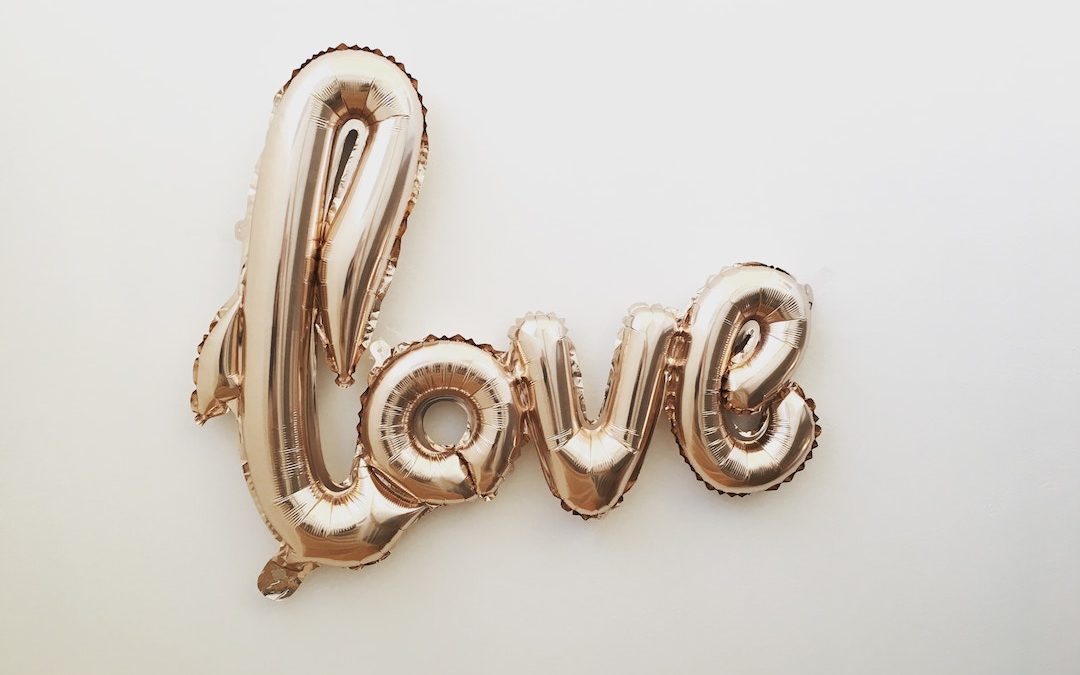
by Rachel Toalson | Wing Chair Musings
My love month is October.
This is the month when I celebrate walking down the aisle in an old historical church situated inside a lovely wood near a lake, at the end of which was the man I loved. The evening of October 11, 2003, was the night when my husband and I looked at one another and promised forever—promised, essentially, that we would break the generations of divorce that marked our family lines. It was the night we walked down an enchanted path lined with deer (just like the princesses had in the fairy tales I’d loved as a child). It was the night we held hands across a stick shift, on our way to a magical Disney World honeymoon.
This year we celebrate fifteen years married.
We try, every year, to remind our sons about the birthday of our marriage. We tell stories of falling in love, laughing with our sons about the miscommunication mishaps, bungled dates, and the fumbling of our feet along the path to forever. Sometimes we take out the old albums and relive the days when we were young and practically carefree, basking in the memories of a time we can hardly recall. Sometimes we dance in our kitchen while our sons do chores around us and pretend not to like our show of affection.
I’ve been wrestling, as I always seem to do, with this idea of love for the last several weeks. I have always been a person given to romance—but romantic love is not the only love I think about. In fact, most of the time the kind of love I think about is the one that extends to all humanity—the one that connects us to each other. The one that often feels difficult to choose. The one that does not always come easily or naturally.
My second son asked me the other day why some people are so difficult to love. He had been bickering all day with his next-in-line brother, who is only fourteen months younger than he is. They currently wear the same size clothes—yet another opportunity for contention in their relationship: whose shirt is whose?
I did not answer his question, because there was a larger question on the table, a larger teaching to be made. A teaching about the nature of love—one so important I could not let it go.
When we are in the presence of someone we consider difficult (which is, of course, always subjective), love can feel nearly impossible. But love is not always something that wells up in us and overflows onto all those around us; it is, most frequently, something we must purposefully put on.
We put on our love. We gird ourselves with love. We clothe ourselves with love, arm ourselves with love, fortify ourselves with love. We focus our eyes on love. We train ourselves to become love.
When we move out into the world—into our schools, our neighborhoods, our workplaces, our social media spaces—we must first put on our love. When we engage in conversation (particularly the heated ones), we must put on our love. When we move about in our homes, we must put on our love.
When our emotions overwhelm us, we must stop, breathe, and reach for love—so that we can put it on.
Love is how we see each other clearly. It is how we learn from one another. It is how we grow ourselves.
Mary Renault famously said: “In hatred as in love, we grow like the thing we brood upon. What we loathe, we graft into our very soul.”
What we love—who we love—we graft into our very soul. The more we think about, embrace, put on love, the more we become it.
I hope we can always be love.
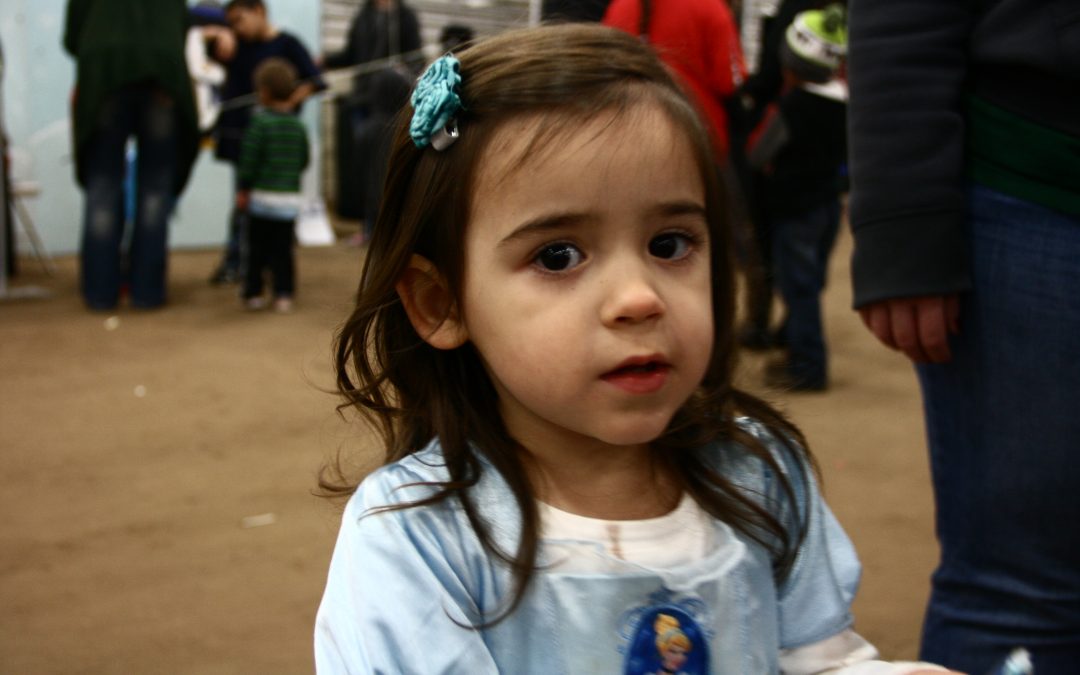
by Rachel Toalson | Crash Test Parents
Every month I sit with a group of ladies and discuss the book of the month and, mostly, our lives. We eat chocolate and drink a little wine and sort through all the things that have happened to us in the stretch between the last meeting and this one.
At the most recent meeting, we found ourselves talking about beauty and body image (because we’re women, and this is a big deal to women).
One of my friends is an elementary school teacher. Something disturbing had recently happened at her school. Some first-grade girls were playing on the playground and, because they all took gymnastics, they decided to start a gymnastics club. Another little girl, who did not take gymnastics, wanted to be in their club, too. When she asked permission, however, one of the gymnasts (who is only six or seven, keep in mind) told her, “You have to be skinny to be in the gymnastics club.”
She didn’t say this in a mean way or a judgmental way or a meant-to-be-hurtful way. She said it matter-of-factly, repeating something she’d likely been told or something she’d overheard.
So the other little girl, who was not allowed entry into this playground gymnastics club, went home and asked her mom, who is thin, if her mom could help her be thinner. This little girl is not fat. She’s simply rounder, as many six- and seven-year-olds who have not yet grown into their bodies are. Her mom took the problem to the school, trying to figure out why her daughter, who was way too young to be aware of body image, had come home asking how she could make herself thinner.
The little girls don’t know any better. But the adults in their lives do.
And we should be doing better.
Do you know what a little girl hears when she is six years old and can’t be in some stupid club because she’s not thin enough? She will hear for the rest of her life that she is not thin enough to be in some ridiculous exclusive club.
I know. I was once that little girl.
See, when I was six years old, my parents didn’t have a whole lot of money. But they scrimped up enough to put me in a ballet class—at least before they divorced and my dad was gone. I was a tall girl, awkward—big-boned, my mother called me. When I look back at the pictures of me as a child, I was not a fat little girl, but I was built a little larger than others.
After I had been taking ballet lessons for a couple of months, my mom and the ballet instructor had a quiet talk, during which (I was listening in the doorway, as I had learned to do if I ever wanted to hear important things) the instructor, who had a French accent if my memory is correct, told my mother that I was probably going to be too “large” for ballet and my mom shouldn’t waste her money. She said it matter-of-factly, as though there was no room for argument.
Now. I understand that there are certain body types that will do well with the rigors demanded by ballet, and there are certain body types that make the mechanics of gymnastics easier. But if we are urging our six-year-olds to concern themselves with being thinner just so they can achieve that body type and somehow have some kind of leg up on all the others, then we’re going about it all wrong (fortunately, my mother never took me back to that class, though the words stuck with me for a very long time).
Girls that young should not even be aware of their bodies and what’s wrong with them. We have plenty of time for that awakening later (and the world will make sure we experience The Awakening). Girls that young should be playing out on school playgrounds, enjoying the company of other “gymnasts” in their gymnastics club or twirling around like the “ballerina” they imagine themselves to be, without looking at their bodies and thinking they need to change them.
I know coaches want to win. I know instructors want what is best for their students, and oftentimes what is best is gently pushing those students out of whatever lessons they’re taking, because they’re just not cut out for it. But using the body as a way to push them out? That’s not acceptable.
I’m not saying that every coach is obsessed with winning. Not every coach would tell a little girl she is too fat or too tall or too slow or too whatever to succeed in her sport. Many coaches are loving, supportive mentors to our little girls, and that’s a really amazing thing (thank you, supportive coaches). But until we can say that all of them are, we’ve got a problem on our hands.
I went through my high school, college, and young adult years starving myself, still trying to prove that I was thin enough to be beautiful, thin enough to be a successful journalist, thin enough to be a good dancer, thin enough to be graceful, thin enough to be accepted, and, sure, it wasn’t all because of that ballet instructor, but the early memories of someone commenting negatively on a girl’s body have a way of sinking down deep and festering there. So when we tell our six-year-old girls that they don’t have a thin enough body to do (blank), what we’re doing is handing them a ticket straight to eating disorder hell. Or body hatred hell. Or body dysmorphia hell. Or whatever it becomes in the life of that little girl. It manifests in many different ways. Anxiety, obsession, depression. Those, too.
Stop telling little girls they’re not thin enough.
Stop exalting this ridiculous idea that there is only one body type that is beautiful. Stop ruining girls’ perceptions of themselves. Stop making our little girls hyper-aware of their bodies before they’re even able to properly spell the word “bodies.”
I don’t have a little girl. I don’t get to assure her that she’s beautiful just the way she was made. I don’t get to tell her that she is perfect in every way. I don’t get to explain that, yeah, it’s good to make healthy choices and do good things for our bodies, but it’s never okay to starve ourselves to fit a certain prototype that is applauded above all the others.
But I have nieces. And I will tell them every chance I get:
You are beautiful just the way you are.
You are more than your body. So much more.
Don’t ever let someone tell you that you can’t do something just because of the way you look. You are brave and creative and kind and strong and loved and good enough.
Because these are the things I wish someone had told me.
This is an excerpt from Hills I’ll Probably Lie Down On, the fourth book in the Crash Test Parents series. To get access to some all-new, never-before-published humor essays in two hilarious Crash Test Parents guides, visit the Crash Test Parents Reader Library page.

by Rachel Toalson | Poetry
I had been racing
around a corner too fast,
and someone had just
waxed the floor,
and you have to understand
that everything had been
flying apart at the seams,
we didn’t know when
things would stabilize,
and the lighting was off,
and I was running
from something,
maybe bullies,
I don’t remember,
I just remember
I took that turn
way too fast and
the floor was too slippery
and my feet flew out
from under me and
I went careening off
toward the tile floor,
and I hit hard,
I mean really hard,
it’s a wonder I didn’t
break something
(maybe I did),
and the whole cafeteria
grew hushed and still,
like someone had pressed
a pause button,
everyone looking at me,
waiting to see what I’d do,
and I didn’t think I had
the courage or the strength
to get back up,
but I did,
so I did,
I got back up,
and I was thirty pounds lighter
and dying of an eating disorder
because life’s waxed floors
are shined to
kill you.
This is an excerpt from Textbook of an Ordinary Life: poems. For more of Rachel’s poems, visit her Reader Library page, where you can get a few volumes for free.
(Photo by Marc-Olivier Jodoin on Unsplash)
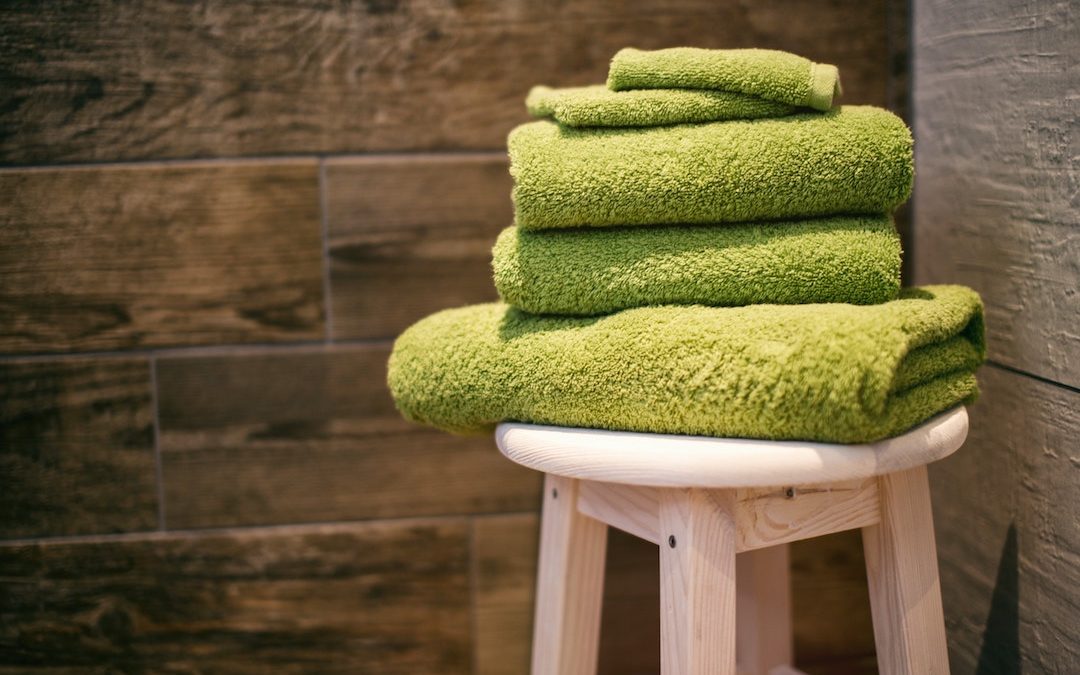
by Rachel Toalson | Crash Test Parents
The other day I was enjoying the rare privilege of a shower, and as soon as I got out to dry off, I noticed a smell emanating from my towel. It smelled of something feral and gross…something like…butt.
Why would my towel smell like butt? I don’t do anything to it that would make it smell like butt.
The mystery didn’t seem all that important to me, though, so I simply got a new towel, in the process dripping water all over the floor like I used to do as a kid. I never cleaned it up when I was a kid. I didn’t clean it up as an adult, either, and my six-year-old shouted at me when he slipped and “broke his knee” (he could walk just fine) in the puddle while on his way to get a Band-Aid he didn’t really need. When I explained to him that I only have so much time for a shower, which most definitely does not include the extra time it takes to find a towel that doesn’t smell like butt and clean up the water I might have dripped in the process, he looked at me and said, “You said a bad word. You said ‘butt.’”
“So did you,” I pointed out. He tried to wipe off his grin. I know the game. They say the “bad” words every chance they get. Butt, fart, it never gets old.
My older boys typically bathe in our garden tub for now, because it’s easier to run bath time like an assembly line: three in one bath, washed by one parent; three in the other bath, washed by the other parent. I typically read to the six- and seven-year-old while they bathe together, and the nine-year-old has the privilege of bathing by himself while I read an entirely different story.
One particular night, when the alarm chimed, telling me it was time for the oldest to get out so we could begin our family story time, I walked out of the bathroom to pick up my Silent Reading book. I walked out to our home library and saw that Husband was already reading and that I’d forgotten my timer. So I re-entered my bathroom, where the nine-year-old had been bathing, at a time when I was not normally present.
Drying-off time.
It suddenly all made sense.
The nine-year-old had my towel in his hands. He was drying off, and when he’d finished, he rubbed it all up and down his hind parts, like he was a dog trying to scratch an itch.
“Uh, what are you doing with my towel?” I said.
“I didn’t have one, so I just used the one that was hanging up,” he said.
I pointed to the side of the garden tub, where a towel was draped. I had draped it there. “You didn’t see that towel?”
He shook his head. “Did you just put that there?” he said, with a half smile and a suspicious eye.
“No,” I said. Trust me. No. It’s been there all along.
“Well, I didn’t see it,” he said.
“So you just thought you’d use mine,” I said.
“I thought it was Daddy’s,” he said.
The mystery has been solved: the nine-year-old has been using my towel. And not just using my towel but abusing it. And the only reason he reached for it is because it was the only one hanging up.
I guess that’s a good reason for leaving your towel on the floor, Husband.
That’s where mine’s going from here on out.
This is an excerpt from Hills I’ll Probably Lie Down On, the fourth book in the Crash Test Parents series. To get access to some all-new, never-before-published humor essays in two hilarious Crash Test Parents guides, visit the Crash Test Parents Reader Library page.
(Photo by Denny Müller on Unsplash)
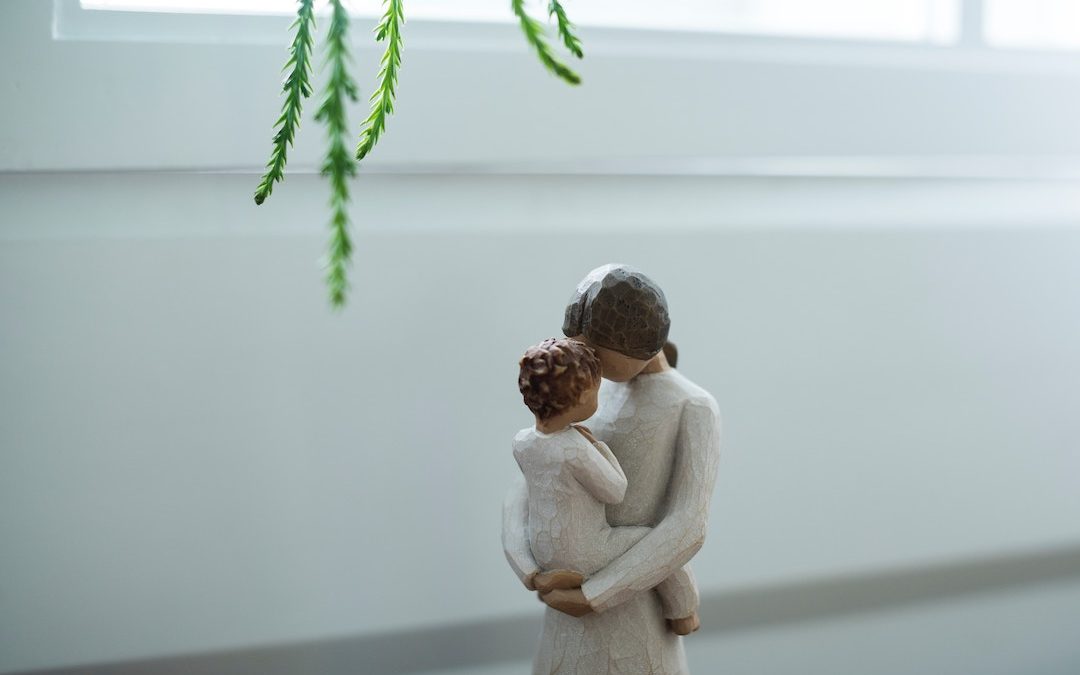
by Rachel Toalson | Wing Chair Musings
She turns sixty this week.
I have known her for just more than half of those years, and in the same way she has watched me grow from infant to toddler to teenager to adult with infants and toddlers of my own, so I have watched her grow.
I have watched those black-brown eyes she got from her half-Choctaw great-grandmother, the same ones she gave to me, soften with the forgiveness of years spent working on it. I have watched the mouth she gave my sister smile without the weight of worry more than I ever did as a kid. I have watched her skin wrinkle into beauty lines that speak of wisdom and bravery and joy and a fierce determination that pulled her through all the hell of her past so she stands, today, mostly victorious.
A couple of weeks ago, we pulled off a surprise birthday party for her, and she walked through a closed door into a party room crammed full of close friends and family who love her. She laughed about having no idea of these plans, because she thought everyone had forgotten she had a birthday coming up at all and had begun planning her own celebration, with a tinge of sadness that she had to plan her own. We went right along with her plans so she wouldn’t know our secret, and then we gathered a week early and shouted our surprise and laughed at her shock.
I don’t know if she knows it or not, but the surprise we yelled said much more than that one word.
How could someone forget a remarkable woman like you? it said.
I get to call her Mama.
///
My first memory of her is bright yellow, with orange and pink and blue around the edges, like a brilliant sunrise. She is reading a book to us. She was always reading books to us, because this is what librarians do for their children. She had a deep love for words, and she wanted to make sure her children loved them, too.
It was in that same house, not long after my first memory, that I remember watching my dad disappear on his motorcycle, and I ran into the house and threw myself onto the bed I shared with my sister, sobbing in my four-year-old hysterical way because I didn’t know when I would see him again.
She knelt by my side for as long as it took, stroking my back while I cried. She didn’t try telling me it would be all right. She didn’t try telling me he would be back soon. She didn’t try telling me he was leaving for our good.
I would learn later it was because she didn’t know any of those answers herself. She just hoped. And prayed. And went on with her life, caring for the three of us on her own.
She is the strongest woman I know.
///
She knelt by my side for another crying, too.
It was the first time I’d had a boyfriend. We dated for a month, or maybe two, and I was in love with that tan and those blue eyes framed by thick black lashes and the way he threw a baseball from the mound. And then he decided to date someone his own age, since I was two years younger, and I was heartbroken, sobbing once more into a pillow on my daybed.
She didn’t knock, just came on through without a word and knelt beside me and stroked my back. She didn’t tell me there would be others or that I would probably be glad for this breakup someday or that I was only fifteen. She sat there, and after a long, long time, she told me stories from her own falling-in-love days, about the boy who had called into a radio station her junior year and dedicated a love song to her, and it was too much too soon; and about the brother of a friend she’d had a crush on since grade school and how he never liked her back; and about the others who didn’t seem quite right for her. And by the end of it, I knew I wasn’t the only girl who’d ever had my heart broken like this.
She left my room, and I sat there in the growing dark, thinking about how this woman so beautiful and amazing had handed her heart to a man, a husband, who had broken it in ways I couldn’t even imagine.
She is the greatest woman I know.
///
I was four or five that morning we were headed to church. We had just stepped out the front door when my mom said, Get in the car, kids. Be quiet, but be quick. Or something like that.
My brother and sister and I did as we were told without asking any questions, probably for the first time ever. We locked the car doors behind us. There was danger in her voice.
We watched her disappear into the house and come back with a gardening hoe. She rattled the branch of one of the trees that stood like a canopy over our yard, and something fell to the ground, something striped and long and thick. It writhed on the ground.
She started hacking, in her Sunday dress, chopping like her life depended on it. She saved us from snakes we couldn’t see that morning.
She hunted other snakes, too.
The ulcers and sorrow and anger that chased my brother after my parents’ divorce—she hunted those snakes on her knees, praying ceaselessly for him. A boyfriend who asked me to marry him early on, one who held a look she knew too well—she hunted that snake with boundaries and limitations and refusals, knowing what would eventually happen: he would stray and I would leave for good (she was right). The money worries that followed us like an unwanted dog, because she never could quite make ends meet with three growing kids—she hunted that snake with a school librarian job on the weekdays and a candy-stocker job at the local store on the weekends.
There were some snakes she could not see, like the ones that waited for my sister in the dark closets of a friend’s house, and the ones that burrowed not-enough holes all through my own heart, and the ones that wrapped my brother tight and hard and closed him to the men around him who might have taught him how to be a man. But she tried with every single day of her life.
She is the bravest woman I know.
///
In sixth grade I signed up for band. In seventh grade I added volleyball and basketball and track, because I didn’t know what I most wanted to do. My mom let me throw myself into all of them.
She worked all day and cleaned house in the afternoons and then sat an evening away in the stands, cheering and clapping and paying attention even on the nights I sat the bench.
In high school, there was marching band and state competitions and volleyball and track and softball and tennis, and I wonder how many of those she wanted to miss. But she never did. She watched me direct the band as a drum major my junior and senior year, and she watched me braid the hair of my teammates in the year I had to sit volleyball out because of a knee surgery, and she drove all the way to a town forty miles away on her only day off to watch me run the 300-meter hurdles, even though I purposely scratched the event because I was so terrified of the humiliation of tripping and falling.
She was there the day I made second chair in the state band, even though I wanted first. She was there the day I ran the 800-meter run for the first time, even though I gassed out by the end of the first lap, since I’d only ever run the 400, and I came in dead last. She was there the day I stood on a graduation stage in my silver robe, shaking through my valedictorian speech while all eyes were on me and the maroon hair I’d dyed the night before as some kind of statement I’ve forgotten now.
She let me be who I was, and she stuck around to watch the failures and the victories so she could love me through every one.
She is the kindest woman I know.
///
There was a night we walked in late at home from my brother’s fifth-grade basketball game, and the answering machine was blinking. My dad had planned to come to the game but never showed, so, thinking it was him, my mother pressed the button. An unfamiliar voice said her name. And then the voice said, I just thought you should know your husband’s girlfriend is three months pregnant.
We stood there, unmoving, unblinking. All the air had been sucked from the room, and not one of us could breathe anymore.
And then my mother said those words in a clear, strong voice: It’s just a prank call. It’s not true.
My mother could lie when it mattered.
And even though we wondered, deep down, if those words were truth or lie, we loved her more for the cover-up.
She didn’t say words like that often, only when she knew we needed them, like the time we waited on a call, all of us strung tight with the waiting and wondering and hoping. Of course he’ll call, she said, even though it took him three years. Your milk will come in, she said after I had my first baby, when I stumbled down the stairs teary-eyed and exhausted and too disappointed to speak, even though it never did. They’ll be out in no time, she said the day my twins were born and nurses whisked them off to neonatal intensive care and I cried and cried and cried, even though it took them twenty agonizing days.
She is the most loving woman I know.
///
She is a piece of my history I am proud to call my own. I have watched her blossom into a loving grandmother, doting on all these boys (It’s the same feeling I had when you kids were born, she said after the first one slid into the world). And now that I am a mother, I know the courage and perseverance and determination it takes to be a good one, and I am so thankful she carried me in her womb and carried me through my growing-up years and carries me still into my mothering ones.
This woman, who kept every one of my earliest stories in a cardboard box under her bed, is the best mother I have ever known. I am who I am because of who she is. She is a hero, a warrior with battle wounds and a bruised purple heart and a legacy of love that saved the lives of three people, and so many more. It is in her heroism that she has taught me all about how to be the greatest mother.
Great mothering does not live in being the greatest housekeeper or the greatest lunch-maker or the greatest provider or even the greatest teacher or discipliner.
Great mothering lives in being the biggest fan.
It means letting children be who they are instead of trying to change them to be who we want them to be. It means guiding them gently in the way they should go instead of beating them toward our way with words or hands. It means staying present in the failures and the victories and all the places in between.
It means being the person they most want to be, because we love and honor and cherish and teach and hold and accept.
This was my mother’s gift to me.
This was my mother’s gift to the world.
This is an excerpt from We Count it All Joy, a book of essays. For more of Rachel’s writings, visit her Reader Library page, where you can get a couple of books for free.
(Photo by rawpixel on Unsplash)










